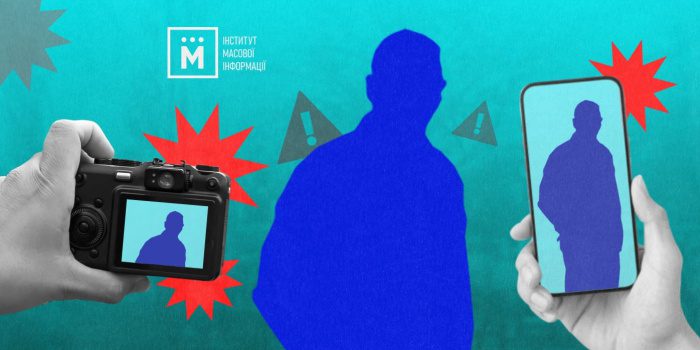On November 20, the Verkhovna Rada adopted in the first reading the draft law No. 8153 “On Personal Data Protection,” which caused a wave of criticism from journalists and media experts. The document may create serious obstacles for journalists in fulfilling their professional duties, according to experts from the Institute of Mass Information (IMI).
One of the most controversial points is the requirement to warn people before taking photos, videos or recording audio in public places. If a person refuses to be filmed, journalists will have to stop their work. This provision is spelled out in Article 11 of the bill, reports Institute of Mass Information.
The current legislation already provides for the right to object to filming (Civil Code), but there is no obligation to warn every participant in public events.
Article 15 of the draft law provides for exceptions for journalistic activities, but these exceptions do not apply to the requirement to warn people about filming. According to Council of Europe experts, such restrictions are too narrow and need to be expanded to ensure freedom of expression and the right to receive and disseminate information.
IMI experts point to several threats posed by the draft law:
- Inability to comply with regulations. When covering public actions, emergencies or mass gatherings, journalists will not technically be able to warn each participant about filming.
- Legal risks. Journalists can become lawbreakers even in ordinary situations due to failure to comply with these norms.
- A tool of censorship. Public figures or event participants may intentionally refuse to be filmed to block coverage of unwanted material.
- Self-censorship. Fears of legal liability can make journalists refrain from covering important events.
IMI Director Oksana Romaniuk noted:
“In real life, compliance with this provision is essentially impossible. The requirement to obtain permission to film can be used to censor or put pressure on journalists.”
IMI experts emphasize that this approach directly restricts the right of citizens to access information, which is a fundamental principle of a democratic society.
Recommendations.
- Amend Article 11. Provide real opportunities for journalists to work in public places.
- Expand the scope of Article 15. In particular, to take into account the Council of Europe’s recommendations on freedom of speech and the right to information.
- Protect journalists from abuse. Introduce mechanisms to make it impossible to use the law to censor or restrict freedom of speech.
The authors of the draft law explain that the 2010 law needs to be updated due to the growth of data processing on the Internet. However, in its current version, the draft law risks becoming a tool for restricting journalistic activity rather than protecting personal data.


Leave a Reply